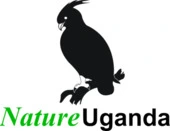Restoring Ecosystems for Improved Community Livelihoods in Uganda

NatureUganda (NU), together with Uganda Biodiversity Fund (UBF), Wildlife Conservation Society (WCS) and Ecological Christian Organization (ECO), is implementing a four-year project that aims to restore and conserve degraded ecosystems in the West Nile and the Mid-Albertine Rift regions of Uganda, while enhancing the livelihoods of both refugee and host communities.
Within this consortium, NU is spearheading the restoration of wetland and riverine ecosystems and has supported the demarcation of over 400 hectares of wetlands in Kyegegwa (Komuchwezi and Kyakatwanga wetlands) and in Kamwenge (Rushango & Kajororo wetlands) districts.

In a bid to halt wetland encroachment, NU is planting trees as live markers in the buffer/protection zones of the demarcated wetlands. The trees planted are indigenous species such as Albizia, Bridelia, Grevillea, Maesopsis eminii (umbrella tree) and mangoes. These not only enhance the wetland boundaries demarcated but also provide valuable resources for local communities including the provision of firewood, fodder for animals, and an additional income source through the sale of fruits. Over 50,000 seedlings of indigenous tree species have been planted as live markers restoring 243 hectares of wetland area. The live markers also contribute to the overall ecological health of the restored ecosystems.
NatureUganda aims to restore and/ conserve over 400 hectares of wetland/riverine, 250 hectares of woodland, and 800 hectares under Sustainable Land Management (SLM), Agroforestry (AF), and Climate-Smart Agriculture (CSA) practices by the end of 2024.
Related Posts
Recent Posts
Forests and wetlands degradation and it’s impacts on herpetofauna and other wildlife
Embracing Regenerative Tourism as the next step in Sustainable Tourism
Engaging Site-based Communities in Research and Conservation: The Locally-based Monitoring Initiative
All Categories
- Conservation and Development (27)
- Eco-tourism (3)
- Education and Awareness (10)
- Forests (7)
- Habitats (9)
- Nature walk (2)
- People (5)
- Projects (9)
- Public dialogue (6)
- Research and Monitoring (18)
- Sites (4)
- Species (10)
- Wetlands (12)
- Wildlife (6)




